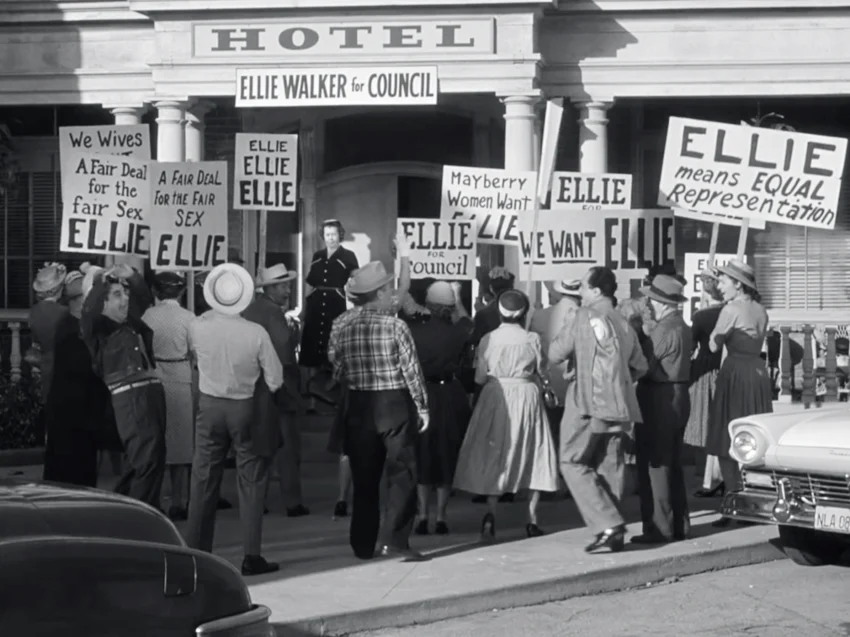The Andy Griffith Show ran for eight seasons on American television in the 1960s, and it has provided generations of viewers with a plethora of life lessons spoken softly in Andy’s Southern drawl and lived out in the peaceful community of Mayberry, North Carolina.
Many modern small cities, particularly in the Southern United States, seek to emulate the quintessential charm and sense of community portrayed in Mayberry. When I first became the City Administrator of Mount Vernon, a town of roughly 2,700 people in Northeast Texas, several people made that exact comparison when they explained the community I had signed up to serve.
I know no series of writings evaluating what it might be like to serve as a city manager in a modern-day Mayberry. Despite holding the title of sheriff, Andy Taylor filled the role of a city manager as often as he did a county law enforcement official.
The episode entitled Ellie for Council highlights a tremendous rift when Ellie Walker, Andy’s girlfriend, decides to be the first woman to run for Town Council. The patriarchy of the town, including Andy, is shaken to its core with insecurity about what this may mean for the future and the prospect of other women getting the same idea. All the men cut off the charge accounts their wives use all over town, and in Mayberry, most women relied solely on their husbands for funding. In exchange, all the women leave the men to do their own household chores. Comically, we see one scene where a woman calmly enjoys a meal at the table while her husband frantically tries to extinguish a toaster fire behind her.
In the episode’s pivotal moment, Andy is serving his son Opie some severely burnt scrambled eggs when Ellie walks in to announce she is withdrawing her name from the election because of the trouble it’s causing in town. Opie gets excited and exclaims to his father, “We won! We beat them females! We kept them in their place! Us menfolks don’t want women running our town. Do we Pa?” Even in the absence of today’s high definition and special effects, you can see the epiphany hit Andy like a Mac truck.
He and Ellie walk together to a rally downtown where the men and women are arguing in the street. Andy marches up to the top of the steps of Town Hall and confesses the shame he felt when he heard Opie parroting the statements he had heard from his father and the other men of the community. He finishes his remarks by acknowledging that while it is has never happened in Mayberry, if a woman – in this case, Ellie- wants to run for Council, she has every right to do so.
Today, as City Managers, we do all that we can to ensure our Police Departments are following the four tenants of procedural justice: respect, voice, neutrality, and transparency. We count on our Human Resources Directors to ensure our hiring practices align with our status as an equal-opportunity employer. In many cases, we even seek objective measures, like a pavement condition index, to ensure we are not discriminating in our approach to street repairs. Most recently, city, county, and school officials everywhere have participated in conversations about the balance of community values and representation in the book collections of their public libraries.
Perhaps most relevant to this episode, we work with our City Secretaries, consultants, and election officials to ensure that our single-member districts provide equitable representation, as needed, after every census.
In City Management, we have a duty to ensure that all of the communities existing inside our cities have a seat at the table. It’s not always easy and rarely popular, but it requires real leadership to do what is right. Andy Taylor stood on those steps before the men he identified and sympathized with and acknowledged the validity of a perspective with which he disagreed. At that moment, he displayed the greatest defense against what Alexis de Tocqueville called “the tyranny of the majority,” and he demonstrated one of the highest attributes required of a professional manager.

